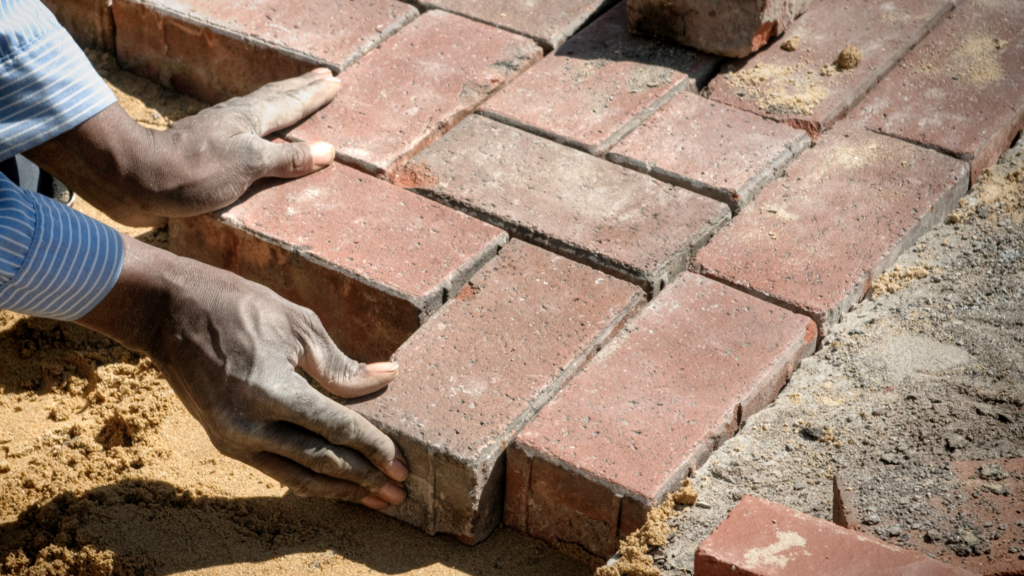 Most of the pastors I meet are either participants in our live training events, or they are participants on our TeamRCIA website. So they are clearly already deeply involved in the RCIA process in their parishes. However, not every parish is blessed with a pastor who is so deeply connected with the initiation ministry of the parish.
Most of the pastors I meet are either participants in our live training events, or they are participants on our TeamRCIA website. So they are clearly already deeply involved in the RCIA process in their parishes. However, not every parish is blessed with a pastor who is so deeply connected with the initiation ministry of the parish.
The number-one reason for this is lack of time. Because pastors have so many responsibilities and so many concerns, even in a small parish, the catechumenate can wind up being just one more thing on a very long to-do list. However, if you can make it easy for your pastor to be involved, in a way that doesn’t require a lot of his time, you have a good chance of deepening his involvement. So here are six ways to do that.
1. Define what you want
I once knew a pastor who kept a meticulous schedule of the parish ministries he showed up for. He didn’t want to be accused of playing favorites, so he divided up his time as evenly as he could across all the activities of the parish. This meant that the rosary group, the youth group, the Knights of Columbus, and the RCIA all got equal attention from him — which wound up not being very much time for any one group. However, by his way of thinking, he was as involved as he could be in the catechumentate. Most pastors are not quite so absolute with their calendars. Still, if you simply say to your pastor that you would like him to be “more involved” in the RCIA, he is likely to think he’s already pretty involved. You have to, instead, ask him for specific dates, times, and actions that you would like from him.
2. Ask your pastor to help with team training
Schedule a time with your pastor when he can come and talk with the RCIA team. Offer him two options. Option one is that he go over paragraph 9 of the RCIA with the team, explaining how he believes the ministries of the faithful could be enhanced in your parish. Option two is that you lead that discussion and ask the pastor to chime in as you do so.
3. Schedule a minor rite
If you are not familiar with the minor rites of the RCIA, you can read about them starting at paragraph 80. They are word services that might also include a blessing or anointing. They are very simple rituals, and you can invite your pastor to lead one of these prayers for your catechumens. A basic form of the ritual should take about 15 minutes. If you only have baptized candidates, then celebrate a Blessing for a Catechetical or Prayer Meeting from the Book of Blessings. There should be a copy of the Book of Blessings in your parish sacristy.
4. Plan and rehearse the major rites
Most RCIA team members are not liturgy planners, and we tend to leave the celebration of the Rite of Acceptance or the scrutinies to the pastor. And if the pastor is busy, he probably doesn’t have time to put much thought into these rites. You can help by reading through the rites yourself and imagining that you are the presider. For example, take your RCIA text over to your church space and physically walk through the Rite of Acceptance into the Order of Catechumens yourself. Say the prayers out loud. Stand where your pastor would (or should) stand, and make the gestures called for in the rite. Imagine where the assembly would be and where the inquirers and sponsors would be. If you are brand new to this kind of planning, do a walk-through for yourself at least three different times. Then using what you’ve learned from your own run-through, ask the pastor for 20 minutes of his time to walk through the rite with you.
5. Narrow what you need permission for
Sometimes, we are afraid to take action without explicit permission. I’m not suggesting you do anything you know the pastor would not approve of. But most pastors are relieved to have trustworthy parishioners take initiative and make appropriate decisions on their own. For example, I know of one RCIA team leader that asked his pastor if the parish could move to a year-round catechumenate. The pastor immediately said no, and the team leader asked me what she was supposed to do with inquirers who showed up in January or June. What you can do is take the inquirers to Mass. And you can take them to coffee after Mass to reflect a bit on what their experience was like. You can do this every week, until RCIA “starts” in the fall. And you don’t need permission — it’s just Mass and coffee.
6. Ask again later
Do you remember the story of the persistent widow? She kept crying out to the unjust judge who finally granted her justice because she kept bothering him. If that’s what an unjust judge will do, how much more can you expect from your pastor, who is striving to be a just person every day? If your pastor turns you down or doesn’t have time to get more involved in RCIA right now, keep respectfully asking.
It is vital that pastors be involved in the initiation ministry of their parishes. Evangelization and initiation into Christ is the reason parishes exist. However, we have to always remember that “the initiation of adults is the responsibility of all the baptized” (RCIA 9). As we work toward helping our pastors become more involved, let’s not lose sight of our primary focus — enabling the whole community to fulfill their baptismal duty as ministers of initiation.
Share your ideas
How have you invited your pastor into deeper involvement in the RCIA process at your parish? Please share in the comments box below.


















I sketch out a schedule/calendar of topics that I intend to cover over the year (ex: Communion of the Saints near All Saints Day, the role of Mary/the Rosary near the feast of the Immaculate Conception, an Introduction to Lent before Ash Wednesday, etc) and I invite the pastor to come and lead a particular session at some point during the year. Sometimes I’ll ask him to cover an area I know he is particularly strong in or invested in, and other times I’ll ask him “Can you come on date X, Y, or Z to discuss A, B, or C?” I tell him I will plan and facilitate the prayer and faith-sharing discussion and all he has to do is talk informally about the specific topic and have a Q and A period. My experience is that my pastors have responded well to these very particular and manageable requests.
Also, I ask him near the beginning of the year if he can simply pop in to say hello, welcome everyone, and introduce himself during one of the first few meetings after I have established the structure for our meetings.
Every pastor – and priest and deacon – is “on the team” because he is the homilist. I often remind the homilists of the catechumen whose lives are changed by the Word, proclaimed and broken open.
We do a year round RCIA program and have for about 10 years now. Most of our attendees are candidates – either Catholics seeking Confirmation or, mostly, those baptized in another faith tradition seeking full communion. We meet for an hour and 45 minutes on Sunday morning, beginning with faith sharing and reflection on the Sunday Scriptures, then discussing a topic of faith that the candidates have done some reading on prior to the session. I try as often as possible to schedule the faith topics in our program materials (Journey of Faith) to coincide with the catechetical theme of the Mass readings — sometimes that works better than others. The tricky part is when a new person joins the group that has been meeting for awhile – how do we bring them along. Depending on their experience of Church that is sometimes not a great challenge (for instance if they have been attending Mass with their spouse for years) but sometimes it is more of a challenge. We are always open to suggestions on how to improve the way we bring the newcomers into the group and helping them come along in the process. Our current pastor would prefer a more academic year model but so far has gone with the year round model we have been doing.